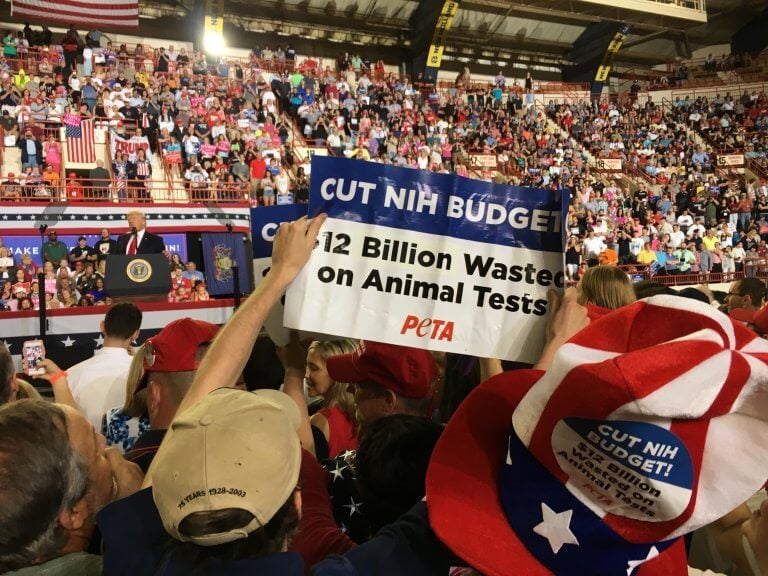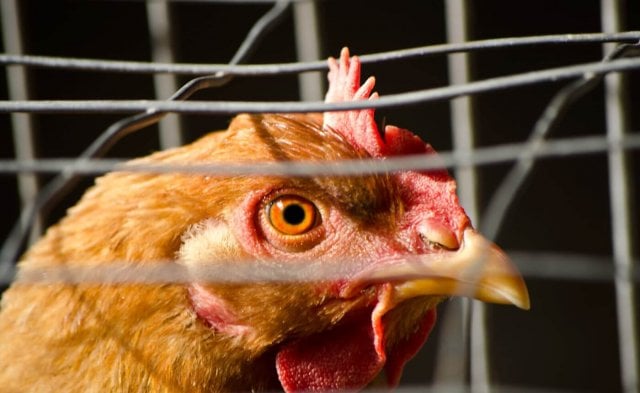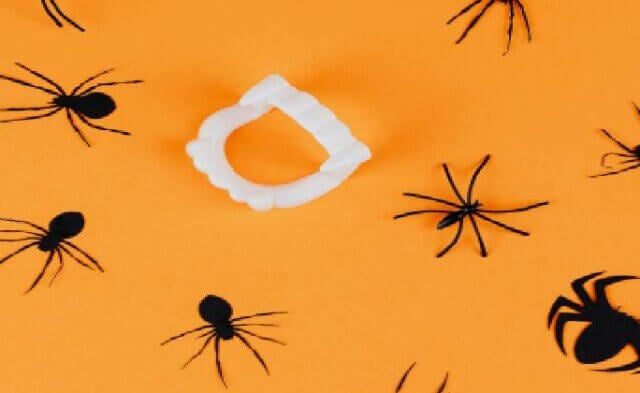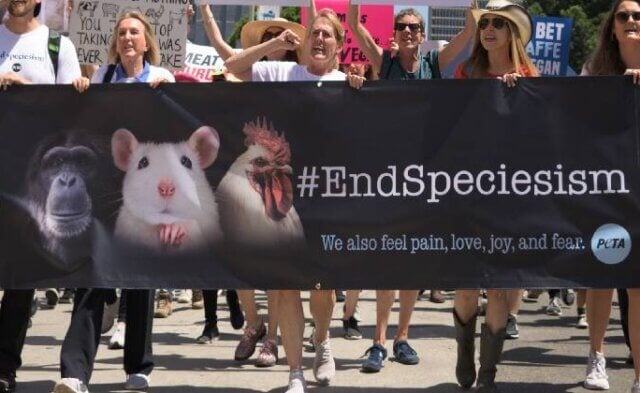The news that two scientists in China cloned monkeys is another reminder that we must turn a critical eye to research and demand that resources and money not be squandered on cruel experiments. Cloning, with its 90 percent failure rate, leaves a trail of bodies in its wake, and it’s too expensive to be practical.
Here in the U.S., we also need to demand that our taxes not be used to support bad science.

Each year, the National Institutes of Health (NIH) awards fully 40 percent of its research budget—more than $12 billion—to experiments that use dogs, rats, monkeys, mice and other animals as “models” of humans. The return on this investment has been dismal, with almost none of this experimentation translating into cures or effective treatments.
Intrinsic biological and genetic differences between species mean that results of animal studies usually don’t apply to humans. Study results vary even among different strains of the same species.
A 2015 analysis concluded that as many as 89 percent of animal studies could not be reproduced, a fundamental step used to confirm the validity of scientific results. This amounts to a staggering $28 billion wasted every year.
The current NIH administration acknowledges the debacle. Director Francis Collins has written, “Preclinical research, especially work that uses animal models, seems to be the area that is currently most susceptible to reproducibility issues.”
A 2014 review published in the British Medical Journal found that “even the most promising findings from animal research often fail in human trials and are rarely adopted into clinical practice. … [O]ne study found that fewer than 10% of highly promising basic science discoveries enter routine clinical use within 20 years.”
Yet animal experimenters continue to give patients false hope. Witness the recent failure in a late-stage clinical trial of Eli Lilly’s much-hyped Alzheimer’s drug, solanezumab, which had been tested successfully in mice and monkeys.
These animals don’t suffer from Alzheimer’s disease—no nonhuman animal is known to—so experimenters fiddle with an animal’s genome to create an artificial buildup of amyloid plaques similar to those in afflicted human brains. The result: Mice seem to have relief from symptoms that look like—but aren’t—Alzheimer’s. Human patients continue to suffer.
The clinical failure rate for new Alzheimer’s drugs now stands at a whopping 99.6 percent. Cancer drugs that are effective in animals have less than a 7 percent chance of succeeding in even the earliest clinical trials.
Multiple systematic reviews have documented the overwhelming failure of animal experimentation to benefit human health in other areas, including diabetes, cardiovascular disease, HIV/AIDS, mental illness, addiction and more.
NIH is well aware of this, too.
In its most recent five-year strategic plan, the agency stated, “Petri dish and animal models often fail to provide good ways to mimic disease or predict how drugs will work in humans, resulting in much wasted time and money while patients wait for therapies.”
While NIH has expressed interest in reducing and replacing animal studies, it continues to fund dead-end experiments that the American public is finding increasingly abhorrent.
The agency must tackle this waste head-on by diverting funds from flawed animal experimentation to promising animal-free, human-relevant research methods.
In just one of many examples, tiny human brain “organoids”—models of living brains created from three-dimensional cultures of neural cells—have allowed researchers to identify the root causes of a rare genetic disorder that leads to fatal brain malformations. Previous studies on this condition, known as Miller-Dieker syndrome, relied on mouse models that scientists admit were critically flawed.
NIH must also conduct systematic reviews of all areas of research in which animals are used. When chimpanzee studies were subjected to this analysis, it was determined that experiments on them could be performed in other ways. It acted on this information and shut down the funding, sparing both chimpanzees and our tax dollars.
We deserve to have our money spent wisely. Patients deserve cures. And animals deserve to be left alone. That’s something that people of any political stripe can get behind.
Emily Trunnell, Ph.D., is a research associate in the Laboratory Investigations Department at People for the Ethical Treatment of Animals (PETA)








